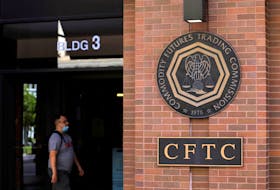By Matthew Tostevin and Neil Jerome Morales
MANILA (Reuters) - Facing a U.N. human rights investigation into its bloody war on drugs, the Philippines presented a new death toll on Thursday to counter much higher numbers given by critics.
But rights groups accused the government of using partial data to mislead and said that even the official figure of more than 5,500 police killings in drug operations was far too high and there must be accountability for every death.
President Rodrigo Duterte's administration has challenged activists' death tolls of the three-year-old drug war that rise as high as 27,000.
Under the banner of #TheRealNumbersPH, officials told a news conference that 5,526 "drug personalities" had died in anti-drug operations between July 1, 2016, and June 30, 2019. That was below a previous police figure of more than 6,700 dead.
"The Real Numbers are the validated figures," Marie Rafael, a presidency official, told reporters.
The drug war faces new scrutiny since the U.N. Human Rights Council adopted a resolution a week ago to investigate the killings. The government rejects accusations of systematic abuses including executions, planted evidence and falsified reports.
Michelle Bachelet, the U.N. human rights chief, said last month that even the official number would be "a matter of most serious concern for any country".
"Getting the real figure is very difficult," said Carlos Conde, Philippines researcher for Human Rights Watch.
"Outside the police, there's no one entity doing the tracking. There are NGOs that are trying but they can only do it based on media reports."
Some of the higher estimates are based on a 2017 official report on "Key Accomplishments" of Duterte's administration that included 16,355 "homicide cases under investigation" on the same page as the nearly 4,000 dead in police operations at that time.
Then, last year, the Supreme Court asked the government to explain more than 20,000 deaths during the drug war.
"I just say at least 20,000 dead," said Ellen Tordesillas of Vera Files, a non-profit fact-checking group. "All we have done is to debunk the government figures with their own figures."
MISSING DEAD
The presidency's Rafael said that official data no longer included "homicide cases under investigation" because those weren't necessarily related to the drug war.
That is where critics say suspicious killings could appear - including any carried out by police outside regular operations or by vigilantes with alleged police links.
One who will not be counted was 23-year-old Jaybee Castor, whose family wept over his coffin on Thursday.
Abducted by masked men in June, he was found dead north of Manila this month with seven sachets of methamphetamine and a sign that read "I am an addict and a thief. Do not tolerate me."
Rafael acknowledged that the official drug war numbers would also not include 3-year-old Myca Ulpina, shot dead last month during a drug raid. Police have said four officers will face charges over that killing.
The Philippine officials did not have figures for the number of other non-suspects killed in the drug war.
They said that the number of killings was small relative to the arrest of more than 193,000 "drug personalities" since the drug war began.
But the rate of successful prosecution of drug cases is low - less than 53 percent in 2017, according to Department of Justice data. The rate for all cases was over 72 percent.
Putting too much emphasis on disagreement over the figures could be a distraction, said human rights researcher Conde.
"Ultimately we think this is an attempt to cover up the killings and the complicity of the killings," he said. "We're no longer debating with them whether it's 6,000 or 27,000. We're now focused on accountability rather than deaths."
(Writing by Matthew Tostevin; Editing by Nick Macfie)









